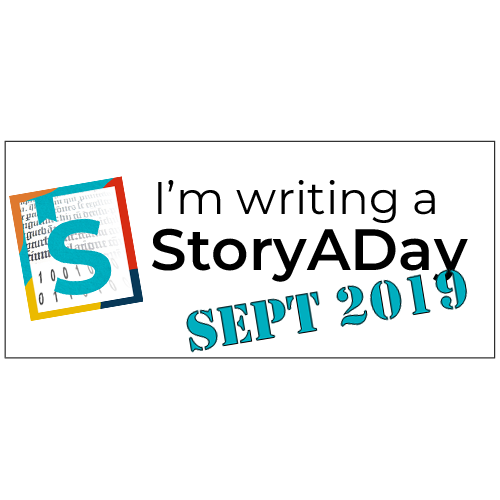Flash fiction writers often miss a fabulous opportunity by leaving a quick, ‘working’ title on their story.
That’s like selling a product by telling people how hard you worked on it, instead of selling them on what the it will Do For Them.
Here’s the thing:
- Title are not usually part of the required word count, so you can go as long as you like!
- Titles are the sizzle that sells the reader on the steak of your story.
- Titles can add a whole new layer of meaning to the story, when the reader is finished.
The Prompt
Write a 300–500 word story,
Then, spend an equal amount of time writing a title that is at least 3% as long as the story (that is, 9 words long for a 300 word story, 15 words for a 500 word story)
Tips
- It is completely acceptable, for today, to use a flash story you’ve written in the past and just re-title it. (And yes, it can be a longer story, just remember I want you to make the title proportional to the story length, so this could get kind of crazy. Good crazy…)
- If you’re stuck for ideas, write a story based on a Story Spark you’ve gathered, a character you’ve already created, or an issue that makes gets you excited (for good or ill).
- Read through the story and pick out the theme.
- Play with puns, double-meanings, and common proverbs.
- Remember that your aim is to catch the eye of a potential reader and pull them in, intrigue them enough that they’ll want to read your story.
- Write a title that is at least 3% as long as the story (word count divided by 100, multiplied by 3) 300 words=9 words, 400 words=12 words, 500 words=15 words, 1000 words= 30 word title! (For the rules-lawyers: you may round up or down as you feel appropriate. This is just an exercise!)
- Try to make it have a deeper meaning, after the reader has read the story (or to add something to their understanding)
- Bonus points: Post your title in the comments and see if we’d be intrigued to read it.
- Extra bonus points: post on someone else’s title to say whether or not you’d read it.
Examples of Long Titles
Clearly Lettered in A Mostly Steady Hand by Fran Wilde, nominated for a Nebular Award for Short Story in 2018. Isn’t that an intriguing title. Why does ‘clearly lettered’ matter and why is the hand only ‘mostly steady’?
Sorry Dan, But It’s No Longer Necessary For A Human To Serve As CEO Of This Company by Eric Cofer
Further reading on Good Titling
Naming the Baby by Bruce Holland Rogers (Flash Fiction Online)
Choosing The Right Name For Your Story by Jason Floyd (Writing World)
Leave a comment, telling us your title. Bonus points: leave a comment on someone else’s title, saying whether you’d read on!




